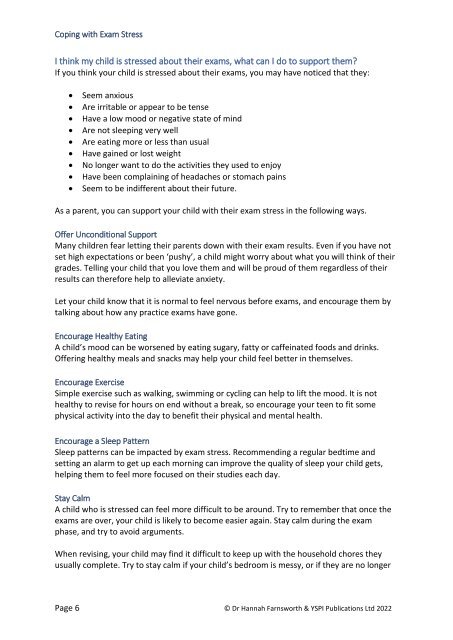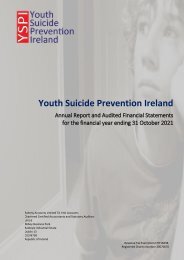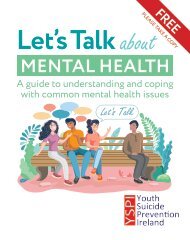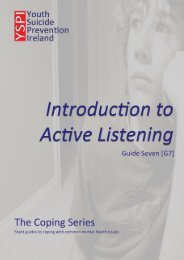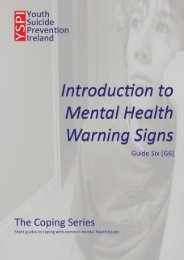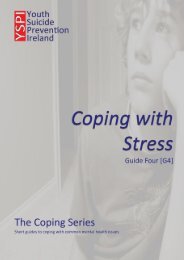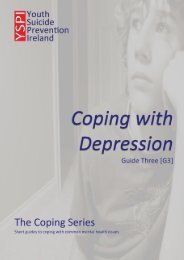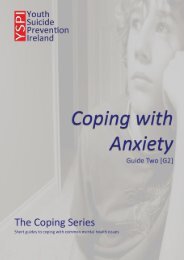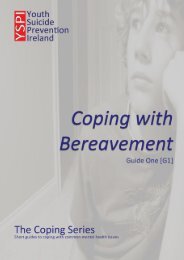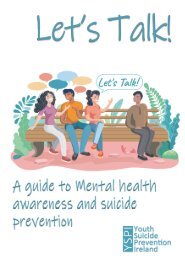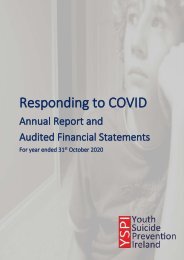Coping with Exam Stress
A new guide to coping with Exam Stress including how to recognise the signs of stress and the latest techniques to reduce stress, and much more. The guide is written by Dr Hannah Farnsworth and contains information for students, friends of students and parents.
A new guide to coping with Exam Stress including how to recognise the signs of stress and the latest techniques to reduce stress, and much more. The guide is written by Dr Hannah Farnsworth and contains information for students, friends of students and parents.
Create successful ePaper yourself
Turn your PDF publications into a flip-book with our unique Google optimized e-Paper software.
<strong>Coping</strong> <strong>with</strong> <strong>Exam</strong> <strong>Stress</strong><br />
I think my child is stressed about their exams, what can I do to support them?<br />
If you think your child is stressed about their exams, you may have noticed that they:<br />
<br />
<br />
<br />
<br />
<br />
<br />
<br />
<br />
<br />
Seem anxious<br />
Are irritable or appear to be tense<br />
Have a low mood or negative state of mind<br />
Are not sleeping very well<br />
Are eating more or less than usual<br />
Have gained or lost weight<br />
No longer want to do the activities they used to enjoy<br />
Have been complaining of headaches or stomach pains<br />
Seem to be indifferent about their future.<br />
As a parent, you can support your child <strong>with</strong> their exam stress in the following ways.<br />
Offer Unconditional Support<br />
Many children fear letting their parents down <strong>with</strong> their exam results. Even if you have not<br />
set high expectations or been ‘pushy’, a child might worry about what you will think of their<br />
grades. Telling your child that you love them and will be proud of them regardless of their<br />
results can therefore help to alleviate anxiety.<br />
Let your child know that it is normal to feel nervous before exams, and encourage them by<br />
talking about how any practice exams have gone.<br />
Encourage Healthy Eating<br />
A child’s mood can be worsened by eating sugary, fatty or caffeinated foods and drinks.<br />
Offering healthy meals and snacks may help your child feel better in themselves.<br />
Encourage Exercise<br />
Simple exercise such as walking, swimming or cycling can help to lift the mood. It is not<br />
healthy to revise for hours on end <strong>with</strong>out a break, so encourage your teen to fit some<br />
physical activity into the day to benefit their physical and mental health.<br />
Encourage a Sleep Pattern<br />
Sleep patterns can be impacted by exam stress. Recommending a regular bedtime and<br />
setting an alarm to get up each morning can improve the quality of sleep your child gets,<br />
helping them to feel more focused on their studies each day.<br />
Stay Calm<br />
A child who is stressed can feel more difficult to be around. Try to remember that once the<br />
exams are over, your child is likely to become easier again. Stay calm during the exam<br />
phase, and try to avoid arguments.<br />
When revising, your child may find it difficult to keep up <strong>with</strong> the household chores they<br />
usually complete. Try to stay calm if your child’s bedroom is messy, or if they are no longer<br />
Page 6 © Dr Hannah Farnsworth & YSPI Publications Ltd 2022


